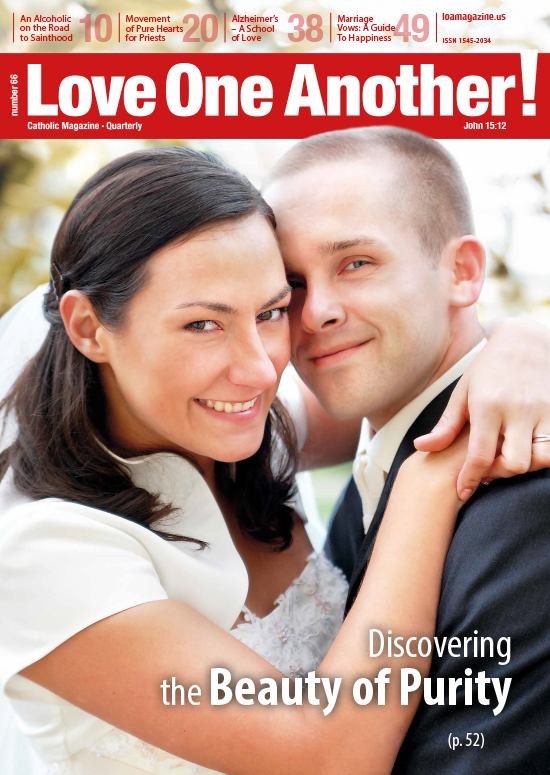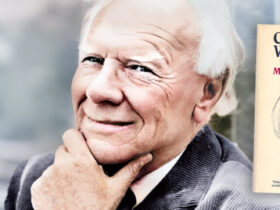Triumph through Prayer

October 12, 2010 marked the thirtieth anniversary of the inauguration in Poland of the Prayer Crusade in Defense of Pre-Born Children—a crusade that led to a cultural breakthrough, an unprecedented transition under democratic conditions from “legalized” abortion to a legal defense of pre-born children.
In 1980, in the conditions of crisis reigning during the dark night of communism, we set ourselves the goal of abolishing the nation’s abortion laws. Humanly speaking, this seemed an impossible task. The rulers of the regime of the time promoted abortion and blocked all manner of social debate on this subject through censorship of the media. They prohibited the publication not only of newspapers on the subject, but any materials in defense of life—even flyers and brochures. I remember well how difficult it was to have more than ten Xerox copies of any piece of printed matter run off without first securing permission from the appropriate communist officials. I could not even have an ordinary rubber stamp bearing a gospel verse made without the requisite authorization! Doctors and nurses who tried to dissuade mothers from “terminating” their pregnancy lost their jobs. Individuals proclaiming Church teachings were harassed and intimidated. A pregnant woman making her first visit to the doctor would be confronted with the question: “Do we remove it or have it?”
Under these conditions, a tiny handful of lay Catholics working in the Institute of the Theology of the Family under the directorship of Dr. Wanda Półtawska (a member of the Papal Council for Family Affairs), in conjunction with the Metropolitan Curia of Kraków, decided to realize this goal through the expedient of prayer. A year earlier we had been heartened by Pope John Paul II’s pilgrimage to Poland. In Warsaw he had prayed: “May your Spirit descend and renew the face of the earth—and this country!” And in Nowy Targ: “I wish and pray constantly that the Polish family may give life, that it may be faithful to the sacred law of life” (June 8, 1979). This latter appeal of Venerable John Paul II served as a direct impulse for organizing the Crusade.
It is worth recalling how tragic those times were. In 1980 the official abortion rate was 138,000 yearly; in fact, there were 3-4 times that many. We have corroborated scientific studies indicating 600,000 abortions annually in those times! That is why we set as the first goal of the Crusade “raising public awareness of the problem of the killing of pre-born children and sensitizing the society to the value of life and responsibility for each human life conceived.”
Our second goal was to pray, “for the rescinding of the April 27, 1956 laws concerning so-called ‘termination of pregnancy’ [these statutes brought about the death of over 20 million pre-born Polish children!] and for the recognition of the right to life of every conceived child.”
In the first—most intense—three-month period of prayer, about one thousand individuals throughout Poland prayed for the realization of this goal. Every day for three months these people took full part in the Crusade by attending Mass and receiving Holy Communion. Another two thousand persons who, because of illness or advanced age, were unable to attend Holy Mass daily, offered up their sufferings for the defense of life.
What were the effects of this prayer? The answer: great effects. The main Polish success here was not the subsequently passed law in defense of life, though clearly this was necessary, but rather the change in public awareness. This truth—so uncomfortable today to all those who see the law as a restriction imposed on society by the Catholic Church and other such “medieval institutions”—is apparent in the drop in number of abortions even prior to the introduction of the legal prohibition. The process went as follows: a change in public awareness, and only then the law. In 1992, prior to the passing of the law, we had 11,640 registered abortions—i.e. twelve times fewer than in 1980!
In the last report of the Polish Public Opinion Center (CBOS) on abortion, we read: “In recent years we have also seen a drop in support for the right to abortion when the woman finds herself in difficult personal straits (15 points since 2002) or does not wish to have a child (9 points since 1999).” Barely 5% of respondents now favor abortion on demand.
In 2005, given the social changes that have occurred, we have drawn up a new program for the Crusade, one better suited to the current situation. In the first place, we are conducting a prayer of thanksgiving for the great good that has already occurred. We have also added two petitions: for continued respect for the life of a pre-born, sick or elderly human being and for the inclusion of precise legal protection of the life of every human person from conception to natural death (supplementing art. 38 of the Constitution of the Polish Republic). On the basis of these experiences, we now have the World Prayer for Life, in which I encourage everyone to take part. Its motto embraces the words of John Paul II contained in his encyclical Gospel of Life: “A great prayer for life is urgently needed, a prayer which will rise up throughout the world” (EV, 100).
Dr. Antoni Zięba, P. Eng.






